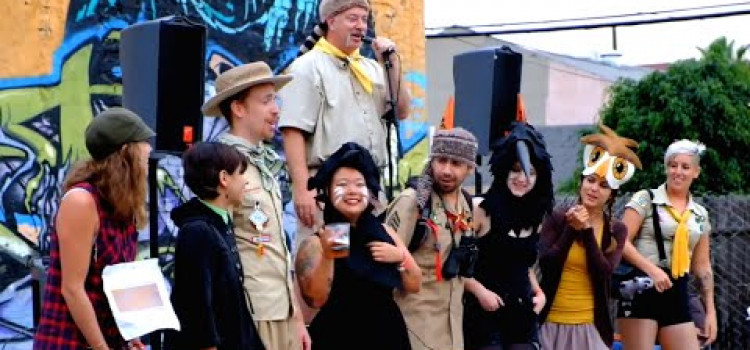

[Editor’s Note: Long Beach music festivals bring in hundreds of young adults to the city every summer. Many Long Beach youth spend months looking forward to the SAM’s music festival, which will give them an opportunity to gather with their peers to watch the latest musicians perform their hearts out. But 20-year-old Alexa Ramirez, an avid concert-goer in the city, is beginning to notice that something about the festival just isn’t right.]
When I first arrived at Long Beach’s Bicycle Drive-In music festival, it seemed like a community-oriented event.
Local Long Beach businesses, like Mable’s Gourmet Pralines, lined Pine Avenue and Seventh Street, Bike Local was offering a free bike valet, and youthful attendees used an empty parking space to watch Wes Anderson’s cult classic, “Moonrise Kingdom,” on a giant inflatable screen as soon as the sun set.
But as I looked around and reflected on other popular Long Beach events I had attended, I realized that something felt different. I was alone in a sea of young, trendy, white people.
This festival was no Open Mic at Viento y Agua Coffeehouse or District 9’s Latin Jazz and Blues Fest, where locals Miguel Fuentes can learn immerse themselves in different cultures.
“Music festivals in Long Beach do not promote diversity in my perspective,” said Fuentes, who added that he enjoys attending events at Viento y Agua because he can “learn something new.”
According to Shift Long Beach, a local organization that produces educational events for the community, when Long Beach’s Summer and Music’s (SAM) events fail to include diversity in its productions it causes a lack of participation from the greater Long Beach community.
“Unfortunately, Long Beach’s free downtown outdoor concerts and festivals do not adequately represent the cultural diversity of our city, and by lacking cultural appropriateness they often fail to benefit local communities,” said Shift Long Beach co-founder Tony Damico. “These concerts seem to draw many hip youth, sell lots of craft beer, and help the artists sell records – but many great local artists aren’t even considered for these shows, and many local residents don’t see the point in attending.”
While SAM Festival organizers Rand Foster, Justin and Ashley Hectus and Gina Dartt, argue that music festivals are the best way to bridge gaps in the community, festival-goers that I spoke with all seemed to agree: the lack of diversity is palpable.
Local musician Elvin Mabborang said, “I definitely see a lack in cultural representation musically but I feel that it’s just an inevitable aspect of music. The mere exploitation of a specific audience or genre doesn’t bother me as much as the simple lack of representation of everyone and everything else, and I honestly feel that it’s up to the musicians to gain equal representation.”
According to Damico, in order to increase the range of culturally diverse musical events, the city of Long Beach must first make free event permitting easier to achieve. Secondly, fiscal support from the Arts Council, the Downtown Long Beach Association, and other sponsors would help to promote the reach of such diverse local musicians.
If festival organizers considered the diversity of Long Beach when it came time to book talent for festivals in Long Beach, concerts would foster more cultural inclusivity and people from different communities would feel welcome to participate in events that are happening in their own backyards. And I, for one, would be more likely to attend.
